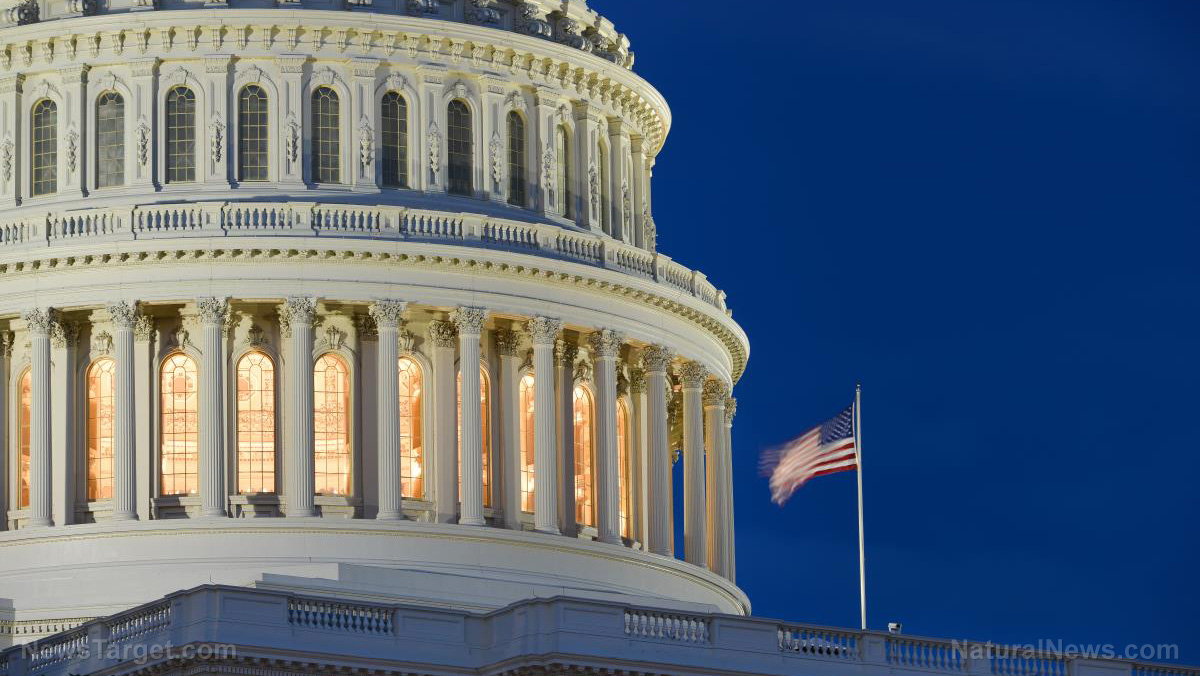South Dakota enacts porn site age verification law
07/10/2025 / By Laura Harris

- Gov. Larry Rhoden signed House Bill 1053, which requires websites that regularly host material “harmful to minors” to verify that users are at least 18 years old using official identification or financial information.
- The law prohibits websites from storing or selling users’ identifying information collected during age verification, with misdemeanor and felony penalties for violations.
- Platforms will get a 90-day notice from the attorney general to comply, with noncompliance leading to civil penalties up to $5,000 and possible criminal charges for repeat offenses.
- The law exempts search engines, ISPs and cloud providers, but unlike Texas’ law, it lacks a content threshold, applying broadly to any site regularly hosting explicit content.
- Critics, including Justice Elena Kagan and the ACLU, warn the law threatens digital privacy, free speech and could cause overbroad censorship beyond protecting minors.
South Dakota has officially signed age-verification laws that restrict minors’ access to online pornography.
House Bill 1053, which Gov. Larry Rhoden signed into law on June 30, defines “covered platforms” as websites that regularly create, host or make available material considered “harmful to minors.” These platforms would be required to verify that users are at least 18 years old using official documents such as a state-issued driver’s license, non-driver ID or financial information like a bank account, debit or credit card.
Importantly, the bill prohibits websites from storing or selling any identifying information collected during the age verification process – a measure designed to protect user privacy. Violations of this provision will carry misdemeanor and felony penalties for repeat offenses. (Related: The path to digital ID mandates: How social media regulation could reshape online privacy.)
Websites that fail to comply would first receive a notice from the state attorney general and have 90 days to implement the required safeguards. Continued noncompliance could result in a civil penalty of up to $5,000 and escalating offenses may be prosecuted as a class one misdemeanor or even a class six felony.
However, HB 1053 exempts certain internet services from its scope, including general-purpose search engines, internet service providers (ISPs) and cloud service providers and their affiliates.
The law is set to take effect on Jan. 1, 2026.
Critics warn of privacy and free speech risks of online age verification law
South Dakota has become the first state to follow suit after the U.S. Supreme Court upheld Texas’ age verification law for adult websites.
But in contrast to Texas, South Dakota’s law lacks a numerical content threshold, which legal experts warn could result in platforms preemptively verifying the age of all users, even those visiting for content that isn’t explicit, to avoid liability.
“The law applies broadly to any platform that regularly deals in explicit material, without setting a specific threshold for how much of the site’s content qualifies,” Ken Macon wrote in his article for Reclaim the Net. “This contrasts with Texas’ approach, where the rule kicks in if at least one-third of a site’s material is deemed pornographic.”
Moreover, critics argued that the law, just like Texas’, chips away at digital privacy and free expression, particularly when they lack guardrails or narrowly tailored definitions.
Supreme Court Justice Elena Kagan issued a strong dissent when the majority declined to block Texas’ law. In her opinion, she warned that such measures could have chilling effects far beyond their intended purpose.
“Many reasonable people, after all, view the speech at issue here as ugly and harmful for any audience. But the First Amendment protects those sexually explicit materials for every adult. So a state cannot target that expression, as Texas has here, any more than is necessary to prevent it from reaching children,” she wrote.
The American Civil Liberties Union (ACLU) echoed that sentiment, claiming that the Supreme Court “has departed from decades of settled precedents that ensured that sweeping laws purportedly for the benefit of minors do not limit adults’ access to First Amendment-protected materials.”
Learn more about ID systems and other ways governments attempt to surveil their populations at Surveillance.news.
Watch this clip from InfoWars as host Harrison Smith talks about how the World Economic Forum is preparing to launch a global digital ID system.
This video is from the InfoWars channel on Brighteon.com.
More related stories:
Digital ID system incoming: Nebraska now collecting citizens’ digital health data.
Utah introduces new digital ID blockchain law.
EU collaborates with foreign governments on digital ID.
U.K. government to launch digital ID wallet this summer.
Sources include:
Submit a correction >>
Tagged Under:
big government, computing, cyber war, Dangerous, First Amendment, freedom, Glitch, information technology, Liberty, Online Digital ID Law, policing, privacy watch, South Dakota, surveillance, Texas
This article may contain statements that reflect the opinion of the author
RECENT NEWS & ARTICLES
COPYRIGHT © 2017 LIVING FREE NEWS




















